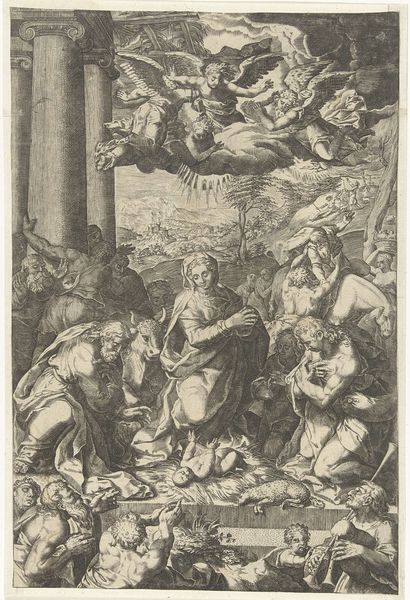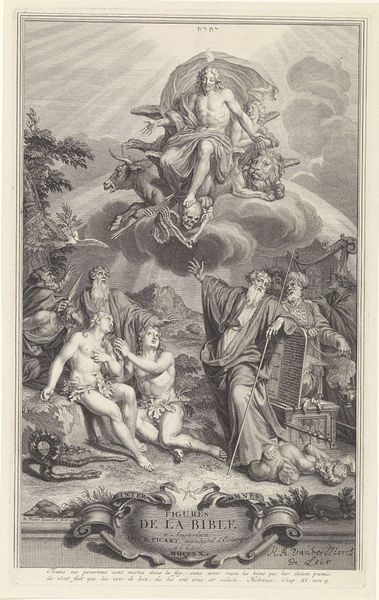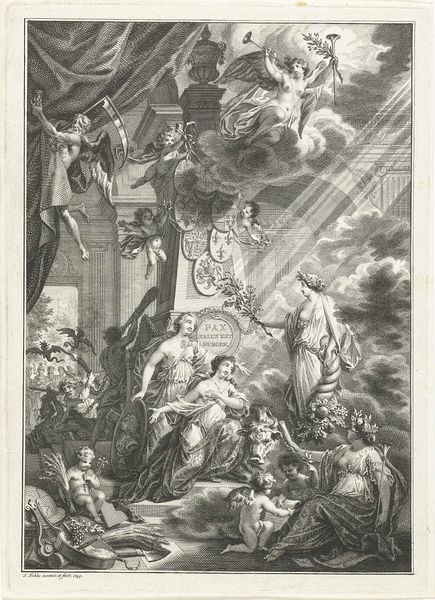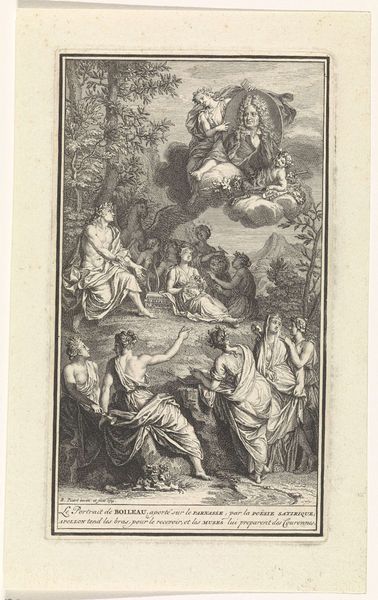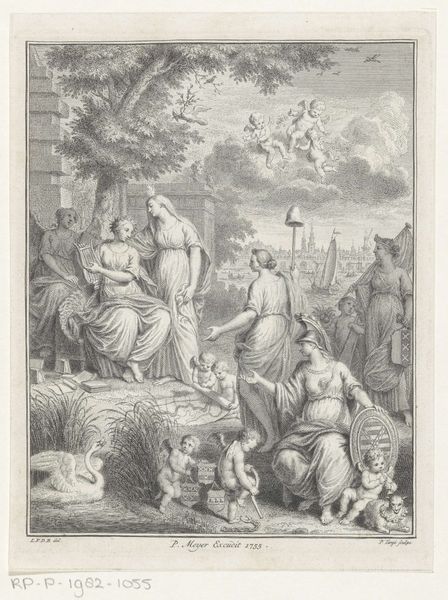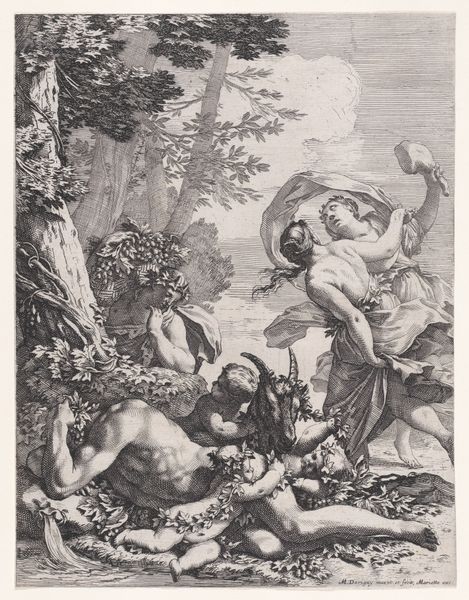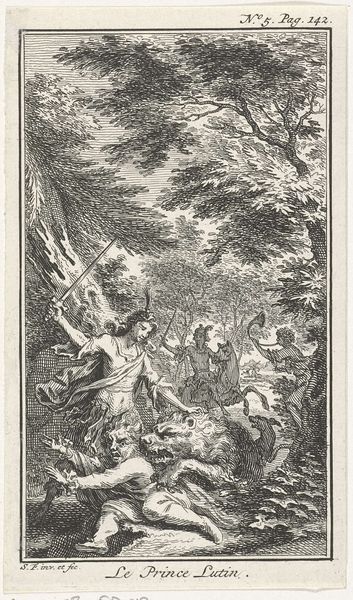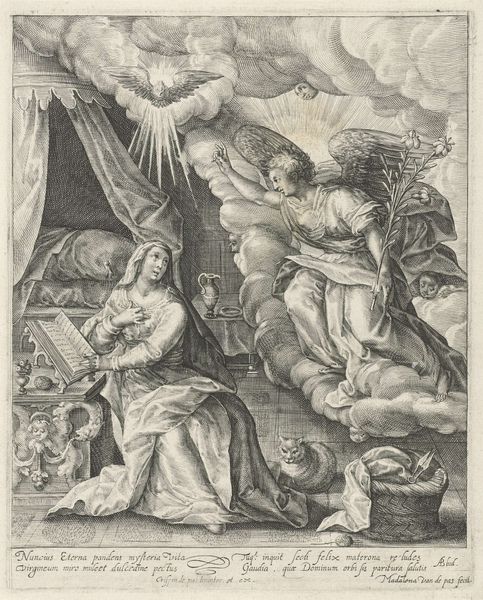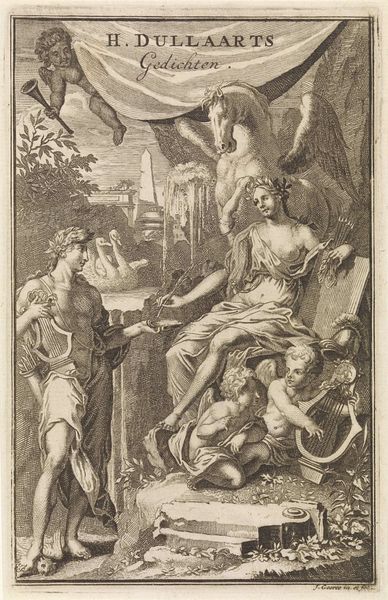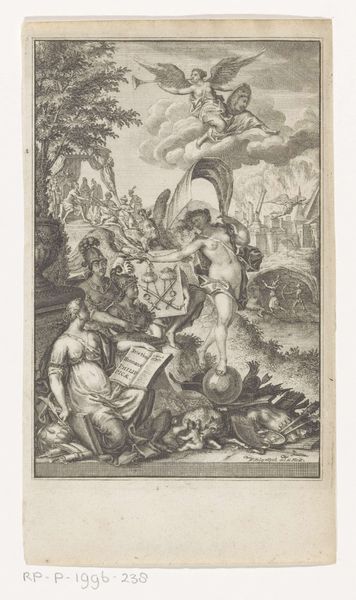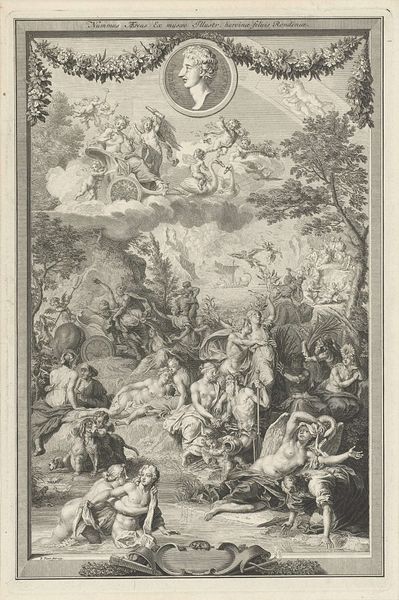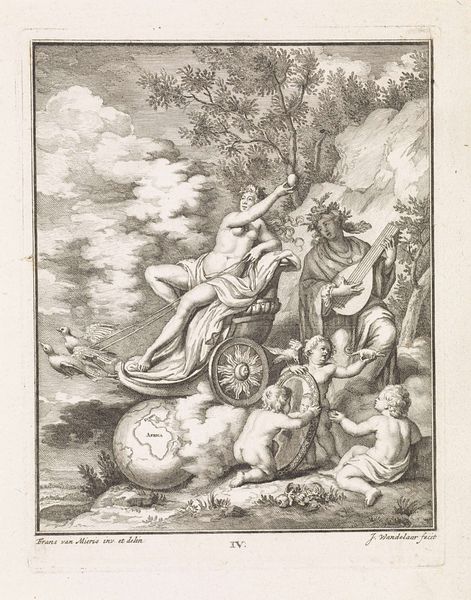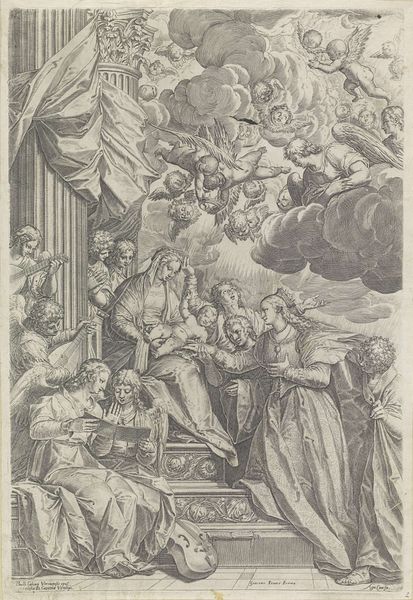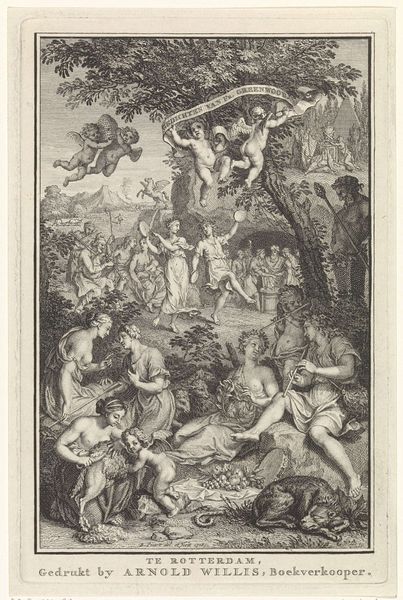
print, pen, engraving
#
ink drawing
#
allegory
#
baroque
#
pen drawing
# print
#
pen illustration
#
pencil sketch
#
figuration
#
line
#
pen work
#
pen
#
history-painting
#
engraving
Dimensions: height 183 mm, width 134 mm
Copyright: Rijks Museum: Open Domain
Editor: This intricate engraving, "Allegorie ter eere Willem IV" created by Simon Fokke in 1755, features many symbolic figures that, frankly, make my head spin! It's currently held at the Rijksmuseum. I’m really struck by the overall sense of power it conveys, and how that power is visualized. What do you see when you look at this piece? Curator: Well, this piece speaks volumes about the role of art as propaganda. Consider the context: It’s a glorification of Willem IV, intended to legitimize his rule. Notice how he is presented not directly, but through allegory, mediated by female figures symbolizing virtues and divine favor. These images and their deployment shaped public perception of leadership. Editor: So, the artist wasn't just trying to represent Willem IV, but create a specific image of him for public consumption? Curator: Precisely. Think about the Baroque style. It is bombastic, visually overwhelming, intending to impress the viewer. Look at the lion, a symbol of strength, and the putti, referencing divine approval. These elements aren’t randomly chosen; they are calculated to construct an image of an ideal ruler approved by history, virtue, and even heaven. Why use an engraving as opposed to, say, a painting? Editor: Maybe because engravings could be easily reproduced and disseminated widely? That would reach a much broader audience. Curator: Exactly. Print culture played a key role in shaping political discourse and solidifying power. Each print becomes a small instrument of political influence, distributed for specific purposes. Editor: That’s fascinating! I always thought of art from this period as primarily aesthetic. It’s eye-opening to consider its deliberate construction of power through widely distributed imagery. Thanks, I'll never look at art of this period the same way again! Curator: Indeed, looking beneath the surface reveals a world where art served as a powerful tool in shaping social and political realities.
Comments
No comments
Be the first to comment and join the conversation on the ultimate creative platform.
